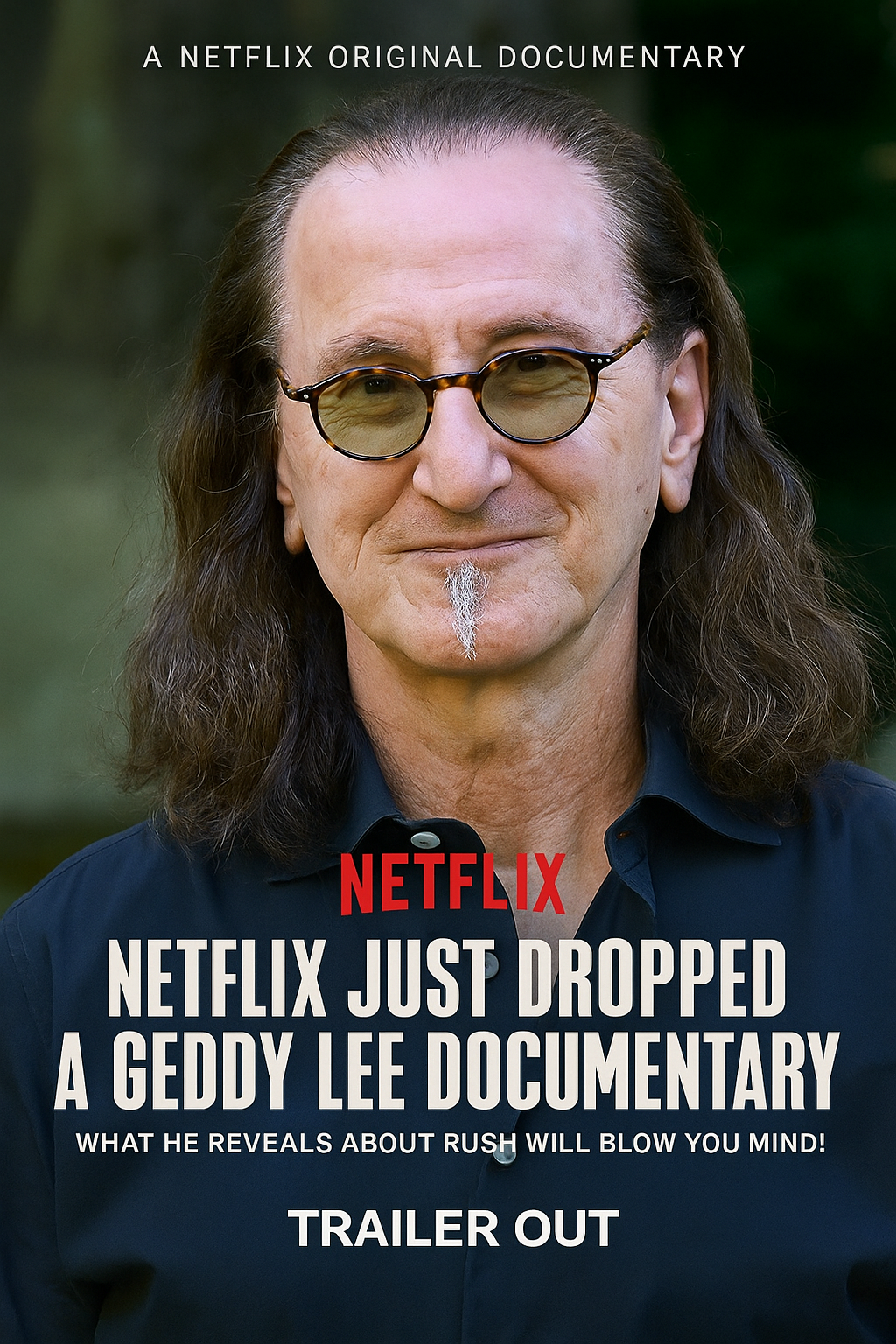
The recently released Netflix documentary series on Geddy Lee has captured the attention of both die-hard fans of progressive rock and newcomers eager to understand the creative mind behind Rush’s legendary sound. With a blend of intimate interviews, rare archival footage, and behind-the-scenes storytelling, the series paints a deeply personal and inspiring portrait of one of rock’s most thoughtful musicians. It’s not just about fame or music—it’s about identity, perseverance, and the search for meaning in the noise of life.
From the opening episode, viewers are immediately drawn into Lee’s world. The documentary begins in Toronto, where Geddy grew up as the child of Holocaust survivors, setting the tone for a story rooted in resilience. His upbringing and family history shaped his outlook on music and life, and this emotional grounding serves as the foundation for everything that follows. Netflix’s production captures these early memories with sensitivity, using never-before-seen photos and interviews with family members who reveal the quieter side of the rock icon.
The next episodes explore his rise with Rush, one of the most respected and innovative bands in rock history. Through interviews with bandmates and longtime collaborators, the documentary revisits the group’s journey from struggling bar performers to progressive rock pioneers. Fans will be delighted by the restored concert footage, candid studio moments, and personal reflections from Lee on the songwriting process that produced classics like “Tom Sawyer,” “YYZ,” and “Limelight.”
One of the most powerful elements of the series is its exploration of friendship and artistic partnership. The relationship between Geddy Lee, Alex Lifeson, and the late Neil Peart takes center stage in emotional recollections. The bond that held them together through decades of creative experimentation and personal tragedy is portrayed with rare honesty. Geddy’s reflections on losing Neil are particularly touching—equal parts heartbreaking and uplifting—as he discusses the lessons of grief and the enduring nature of love and music.
In later episodes, the focus shifts toward Geddy’s post-Rush life, where he continues to explore his passions beyond the stage. Viewers see him in his home studio, experimenting with new sounds, collecting vintage instruments, and reflecting on what legacy means after decades in the public eye. The documentary highlights his humility and humor, showing how even after achieving legendary status, Geddy remains deeply curious and connected to his craft.
What makes the series so engaging is its balance of musical genius and human vulnerability. It’s not simply a career retrospective—it’s a meditation on identity, memory, and creativity. Netflix masterfully interweaves interviews with younger musicians influenced by Lee, who speak about how his artistry inspired their own paths. These moments connect generations of artists and fans, underlining the universal reach of Geddy’s work.
Cinematically, the documentary is stunning. The visual direction merges warm lighting, archival textures, and concert vibrancy to create an immersive atmosphere. The soundtrack, naturally curated with Rush’s most defining moments, enhances every emotional beat. Netflix’s team has gone to great lengths to ensure that both longtime fans and casual viewers experience something authentic and deeply resonant.
For those who have followed Geddy Lee for years, this documentary feels like a conversation long overdue. He opens up about fame, self-doubt, and the cost of relentless pursuit in the music industry. His reflections are not those of a man boasting of his past but rather one contemplating what art truly means in a lifetime of constant reinvention.
Date: November 1, 2025.
As the final episode concludes, there’s a profound sense of closure and renewal. The narrative reminds viewers that Geddy Lee’s story is not finished—it continues to evolve as he embraces new projects and collaborations. The final scenes, set against a stripped-down acoustic performance, leave audiences with a feeling of gratitude for the music and the man behind it.
Critics have praised the documentary not only for its technical brilliance but also for its emotional sincerity. It stands as one of Netflix’s best music-based releases in recent years, managing to be both nostalgic and forward-looking. By allowing Geddy to narrate his own journey, it offers authenticity and vulnerability that resonate far beyond the rock community.
In essence, the Netflix documentary series on Geddy Lee is more than just a tribute—it’s a reflection on time, creativity, and human endurance. Whether you’ve followed Rush for decades or are discovering their music for the first time, this series reminds you that greatness is not only in what you create but in how you evolve through it. It’s a must-watch for anyone who believes in the transformative power of music and storytelling.



